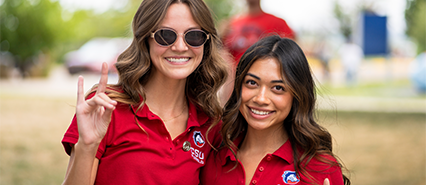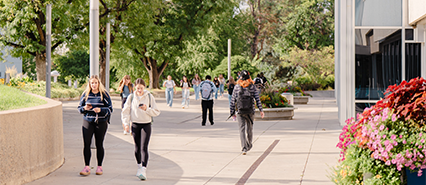Conceptual Framework
A Conceptual Framework guides the planning and organization of an educator education program. A coherent conceptual framework is a program’s platform, summarizing its philosophical views of teaching and learning roles and its essential understanding of how students become teachers.
A conceptual framework gives an educational program its distinct emphasis, a vision of the kind of program it wants to be, and the characteristics of the teachers it hopes to develop. It simply describes to everyone what the program is all about.
The conceptual framework of the School of Education is Building and Bridging A Community of Learners. The organizing theme of learning communities focuses the attention of faculty and students on the essential nature of teaching and learning:
- How does the community shape learning and achievement?
- What are the roles of successful learners and teachers?
- What social interactions are necessary for both learning and community?
- How is the definition of a learning community changing in an increasingly technological age?
- What is the relationship between the concept of a learning community and the democratic ideal of American education?
At CSU Pueblo, our vision of quality education is rooted in a learner-centered environment. We believe that learning, not teaching, should be at the core. This commitment to our students’ learning journeys sets our program apart and instills trust and confidence in our faculty and students.
All learners will achieve in communities where learning is discussed publicly and constructively, a positive climate surrounds all members, and support exists to scaffold all learners’ individual growth and development.
Inclusive, equitable communities require constant attention to the nature of relationships among teachers and students. CSU Pueblo students will be prepared to participate as learners and teachers in overlapping and expanding learning communities – from the university classroom to K-12 settings, the professional education community, distributed communities created by technology, and cultural, economic, and political communities of students and their families.
To become beginning teachers, students must change their perceptions of themselves as learners and teachers. CSU Pueblo students progress through the program; they will skillfully assume a variety of roles, including those of:
- master learners
- instructors
- collaborators
- apprentices
- models
- coaches
- colleagues
- mentors
The mission of the CSU Pueblo School of Education program is to prepare educators and learners to be of quality and distinction by exposing students to quality teaching and learning communities.


